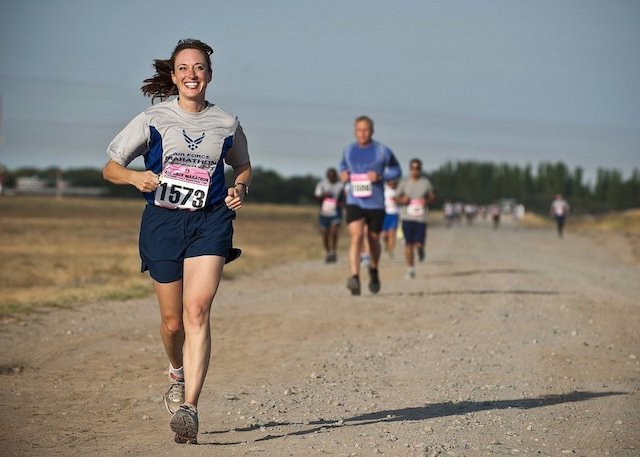
In a new study, researchers found that running a marathon for the first time could have several health benefits.
They found that for first-time marathon runners, training and completion of the marathon were linked to reductions in blood pressure and aortic stiffening in healthy people.
The health benefits were equivalent to a four-year reduction in vascular age, with the greatest benefits seen in older, slower male marathon runners with higher baseline blood pressure.
The research was conducted by a team at University College London and Barts Heart Centre in London.
Arterial stiffening is a normal part of aging, but it also increases heart risk in otherwise healthy people by contributing to increased pulse pressure and ventricular overload, which are linked to dementia and heart and kidney diseases, even in the absence of plaque in the arteries.
While blood pressure medication can modify arterial stiffness in established heart disease, more heart disease events occur in people without diagnosed with high blood pressure.
Regular aerobic exercise is a lifestyle modification that has real-world implications, particularly with running as an increasingly popular form of non-prescribed exercise.
In the study, the researchers examined 138 healthy, first-time marathon runners from the 2016 and 2017 London Marathon.
They examined the participants before training and after marathon completion to see if age-related aortic stiffening would be reversible with the exercise training.
All participants were recommended to follow the “Beginner’s Training Plan” provided by the marathon, which consists of approximately three runs per week that increase in difficulty for a 17-week period prior to the marathon.
The average marathon running time was 5.4 hours for women and 4.5 hours for men.
The team found that training decreased systolic and diastolic blood pressure by 4 and 3 mmHg, respectively.
Overall, aortic stiffness reduced with training and was most pronounced in the distal aorta with increases in distensibility—the capacity to swell with pressure—of 9%.
This amounted to the equivalent of an almost four-year reduction in ‘aortic age.’
Older patients had greater changes with exercise training, with males and those running slower marathon times having the greatest benefit.
The findings show it is possible to reverse the consequences of aging on the blood vessels with real-world exercise in just six months.
The study highlights the importance of lifestyle modifications to slow the risks linked to aging, especially as it appears to never be too late as evidenced by our older, slower runners.
The lead author of the study is Charlotte H. Manisty, MD, of the Institute of Cardiovascular Science.
The study is published in the Journal of the American College of Cardiology.
Copyright © 2019 Knowridge Science Report. All rights reserved.



